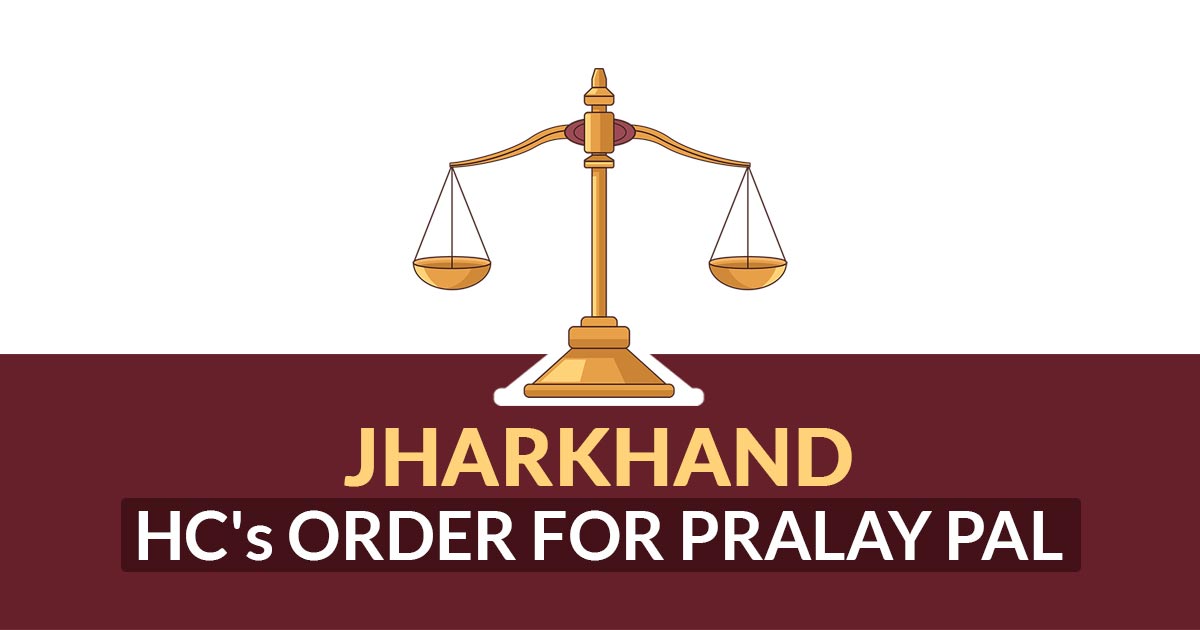
In its recent ruling, the Jharkhand High Court has furled that when a penalty order is overruled, it will be assumed that there was no concealment of income, resulting in the automatic decline of prosecution under Section 276C(1) of the Income Tax Act.
Justice Sanjay Kumar Dwivedi, in his judgment, highlights that based on previous rulings, it is clear that when a penalty order is set aside, the presumption of no concealment occurs, causing the automatic dismissal of a penalty under Section 276C(1). The petitioner should not be subjected to a criminal trial in such cases, as it lacks legal grounds.
Read Also: HC: Offences U/S 276CC Against Assessees as Company’s ITR Filed But Not Individual
He further noted that although penalty proceedings and prosecution can proceed simultaneously in some cases, in this particular case, the penalty proceedings had already been declared invalid due to an appellate order. Considering the aforementioned judgments, the petitioner’s case is deemed subject to dismissal. Moreover, if the penalty proceedings have been set aside, it implies that the necessary men’s rea element of a criminal offence is absent.
This ruling emerged from a petition requesting the termination of criminal proceedings concerning C/2 Case No. 684 of 2016. The complaint was initiated by the second party (opposite party no.2), who argued that the petitioner had filed income tax returns for the Assessment Year 2011-12 on 31.07.2011, revealing an aggregate income of Rs. 18,83,940/-. The case was selected for scrutiny under the Computer Assisted Scrutiny Selection (CASS).
Following this, the Deputy Commissioner of Income Tax in Jamshedpur issued an assessment order under Section 143(3) of the Income Tax Act on September 13, 2013, revealing a total income of Rs. 20,66,090/-. This assessment included three additions: Rs. 1,64,695/- for unrevealed interest income from National Saving Certificates, Rs. 4,351/- for unrevealed bank interest, and Rs. 13,100/- for unrevealed interest on Fixed Deposits with Telco Ltd.
The allegation against the petitioner was that they intentionally concealed income amounting to Rs. 1,82,146 and provided inaccurate information, leading to proceedings under Section 271(1)(c) of the Income Tax Act. The penalty was affirmed by the Commissioner of Income Tax (Appeal) in Jamshedpur on November 27, 2015. The petitioner was accused of attempting to evade tax liability by giving inaccurate income details, which has been considered an act of income concealment.
The authorization to start prosecution under Section 276C(1) of the Income Tax Act for the Assessment Year 2011-12 was granted by the Principal Commissioner of Income Tax in Jamshedpur on March 3, 2016. However, a clerical error in the authorization order was rectified by the Principal Commissioner of Income Tax on March 21, 2016.
In its ruling, the Jharkhand High Court observed that penalty proceedings and prosecution can coexist, but in this particular case, the penalty proceedings had already been overruled due to an appellate order. Consequently, the Court concluded that the petitioner’s case merited allowance, as the setting aside of the penalty order indicated an absence of concealment.
To summarize, the Jharkhand High Court dismissed all criminal proceedings concerning the case C/2 Case No. 684 of 2016, including the orders dated May 30, 2016, and July 15, 2017. The petition seeking this action was granted and subsequently resolved.
| Case Title | Pralay Pal Vs The State of Jharkhand |
| Date | 23.08.2022 |
| Citation | Cr.M.P. No. 2266 of 2017 |
| For the Petitioner | Mr. Amit Kumar Das, Advocate |
| For the State | Mr. Vishwanath Roy, S.P.P. |
| For O.P. No.2 | Mr. Anurag Vijay, Jr. S.C. Mr. R.N. Sahay, Sr. S.C. Ms. Sharda Kumari, Advocate |
| Jharkhand High Court | Read Order |









